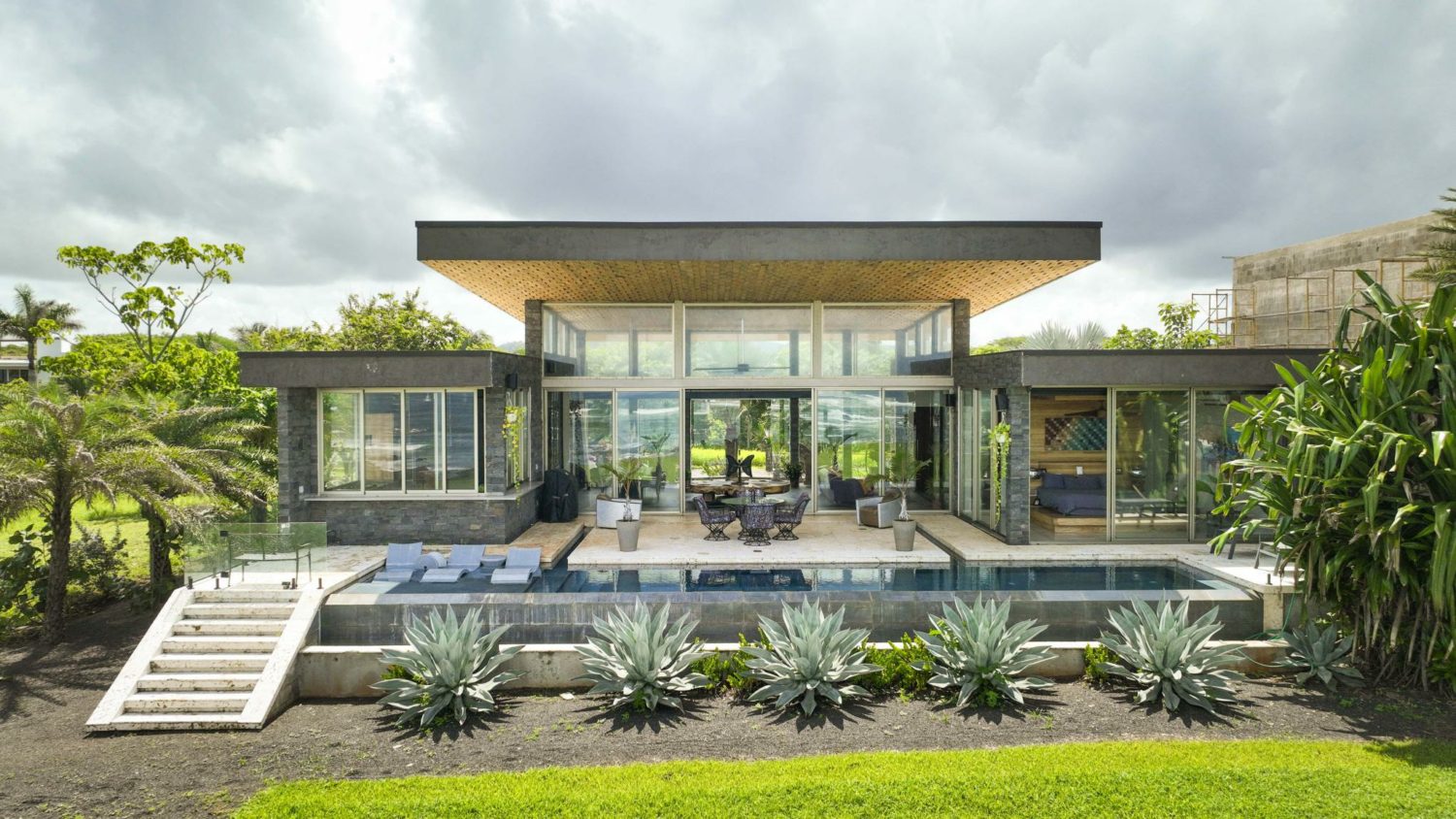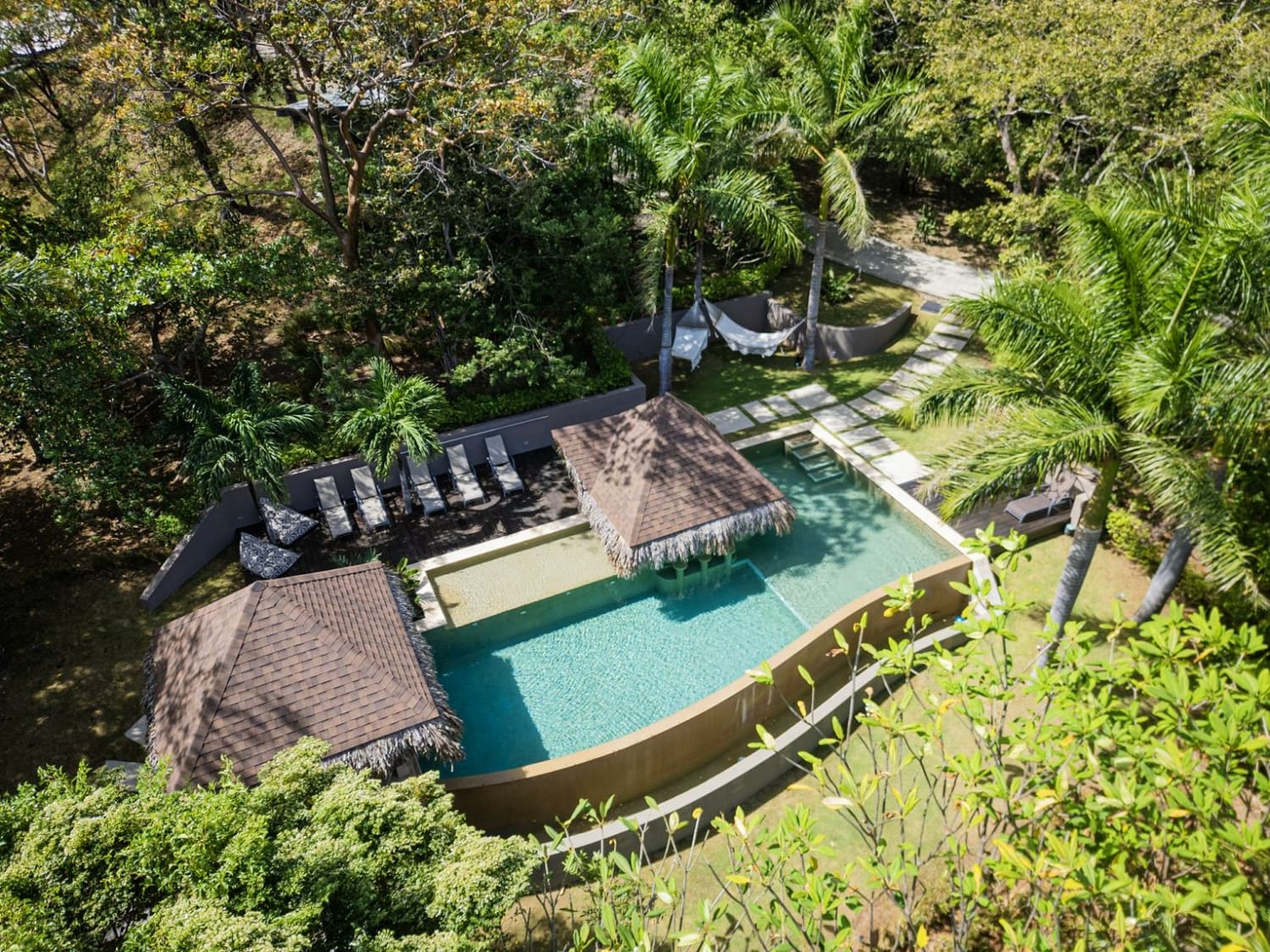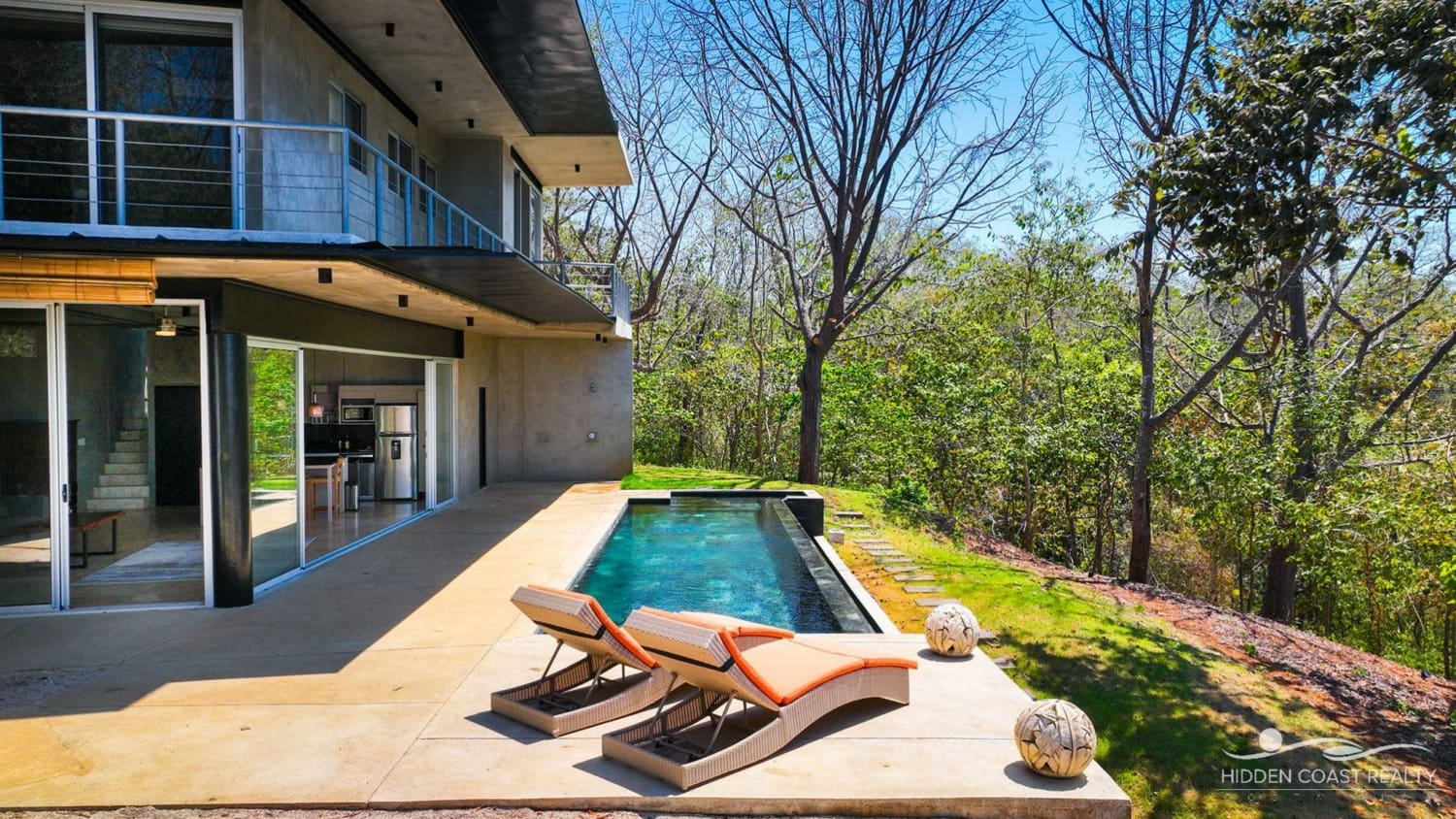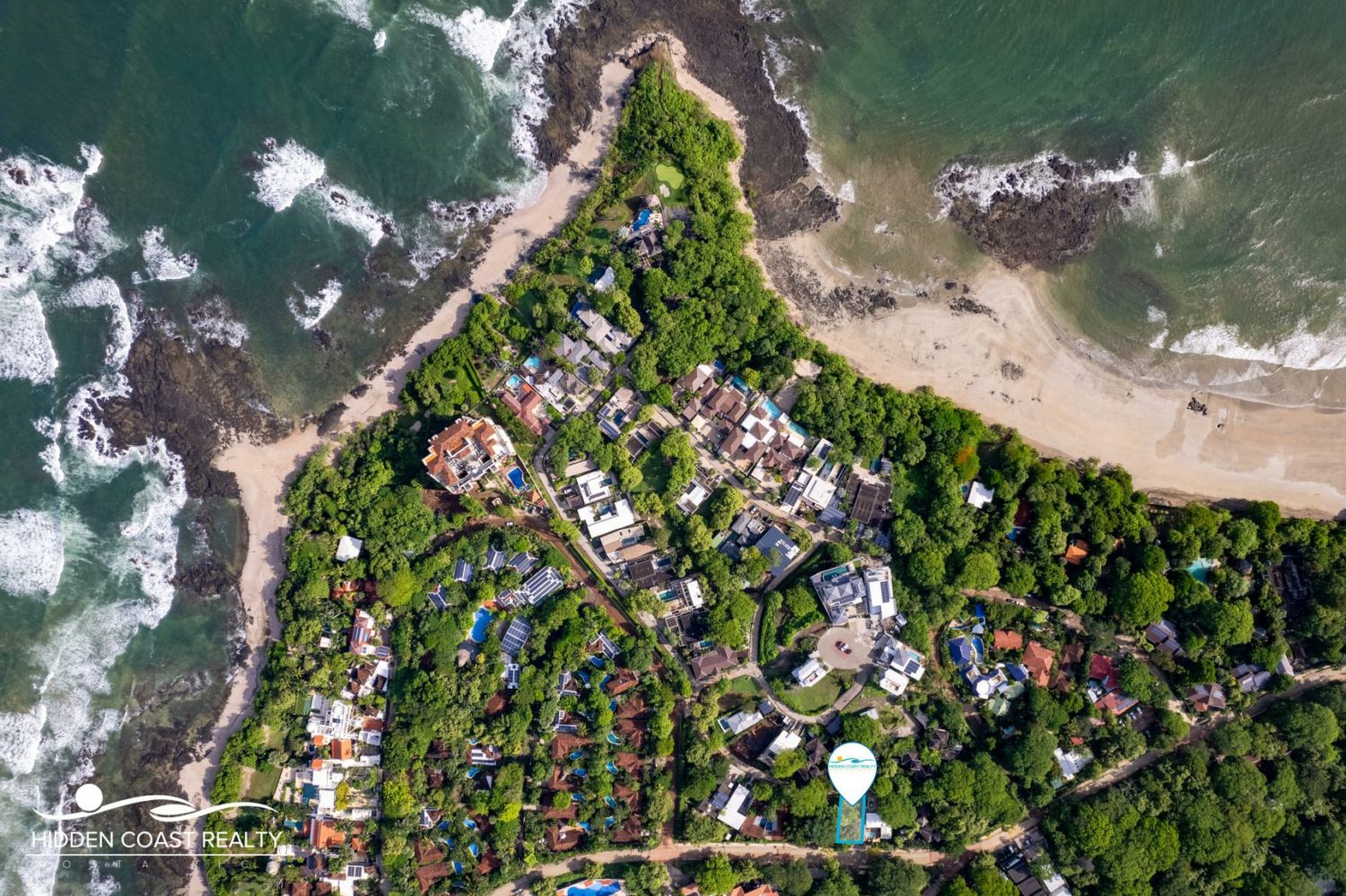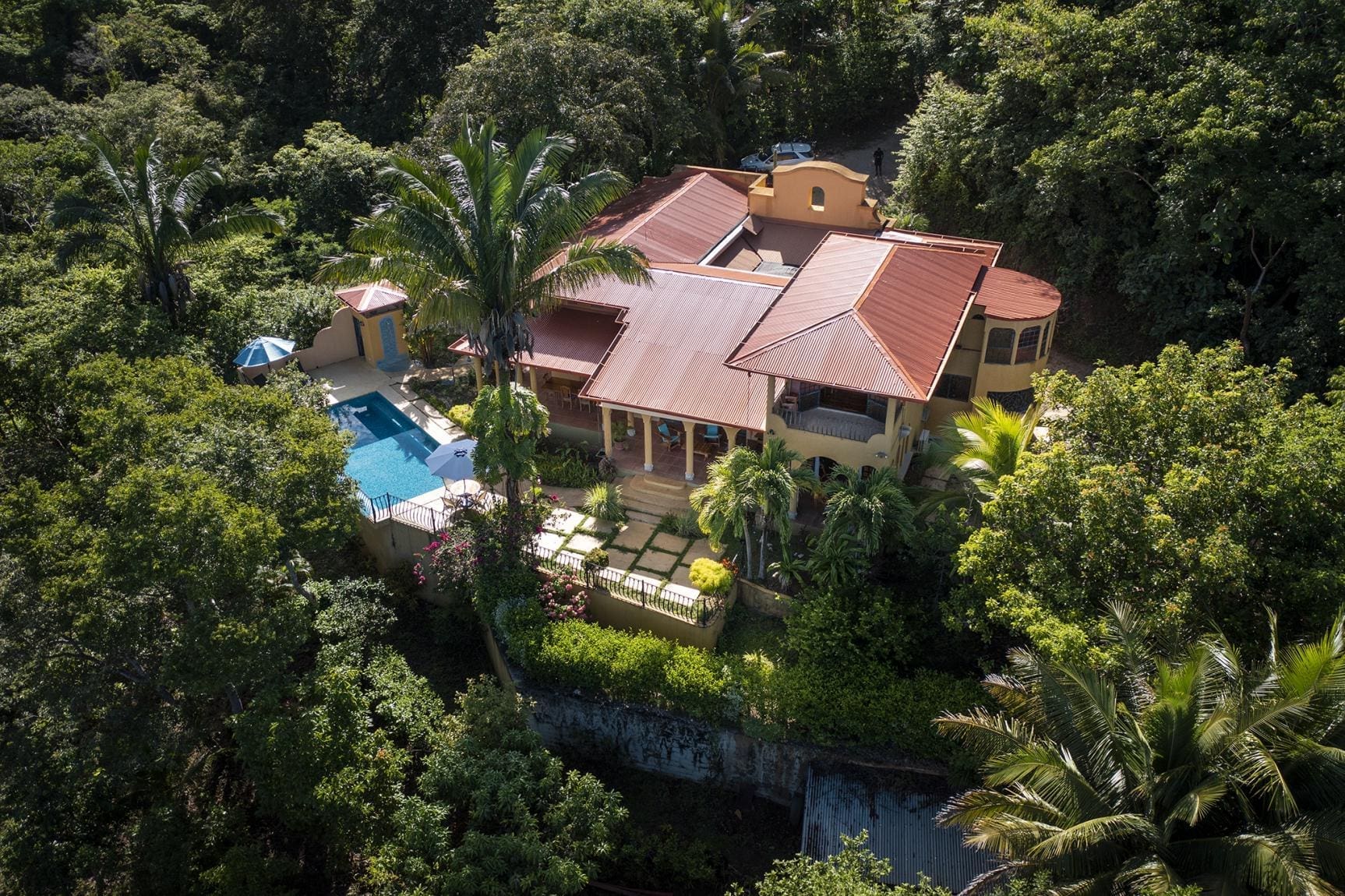- Foreigners have the same rights as Costa Rican nationals, except in the case of concession land (government-leased). The majority (95%) of beachfront property is located in the Maritime Zone and is subject to increased regulation and considerations. Everything else is titled, fee-simple land.
- Costa Rica Properties can be held in the name of individuals or corporations.
- It is often advisable to purchase properties in the name of corporations which can be purchased through an attorney.
- Sociedades Anonimas (SA’s) are the equivalent of C-corporations.
- Sociedades Responsibilidad Limitadas (SRL’s) are the equivalent of S-corporations.
- Both allow for the division of shares and on a potential way of creating partnerships.
- The base property tax is .25% of the registered value annually.
- There is a luxury tax that is only applicable to high end residences. It is based on the cost to rebuild the home/condo in terms of materials. In practical terms, it applies to very large, recently constructed Costa Rica properties. You can ask if the luxury tax applies to a home you are considering purchasing.
- There is only one insurance provider in Costa Rica at this time, the Instituto Nacional de Seguros (INS).
- Residential insurance costs between $500 and $1500 annually for fire, earthquake, flood, etc. damage.
- Theft is a separate policy.
- Liability is a separate policy.
- Most deals start with an offer to purchase or letter of intent which is composed by a real estate agent or an attorney. This OTP or LOI will include the main terms of the deal such as, purchase price, legal information of the property, length of the Due Diligence period, inclusion and exclusions etc.. Once signed by the buyer, it is presented to the seller.
- If accepted by the seller, and this usually within a week a 10% of the purchase price is deposited b y the buyer in escrow with a title company and due diligence starts.
- During Due Diligence, the attorney who represents the buyer will study the title and ensure there is nothing wrong from a legal standpoint with the property. Also during the DD, an inspection and inventory will be executed to ensure the physical property does not present any concerns.
- * Important to note that the buyer is free to renounce to the deal and repossess the security deposit at any given time during the DD period and this with no repercussions or specific reason.
- At the end of the Due Diligence and if the green light is given, the buyer will proceed to wire the balance due and the closing date is set.
- At the closing, the buyer and seller or attorneys with powers of attorney will sign off and complete the transaction.
- Residency is not necessary to own property.
- You do not need a visa to arrive in Costa Rica and will be granted a 90 day tourist visa upon arrival.
- A simple way to get residency is called Rentista, wherein you establish that you are able to live off of your own means:
- You need to submit a criminal background check and birth certificate.
- You need to establish that you have $2,500/month in outside support that can be converted into Colones.
- You can also get a visa through marriage to a Costa Rican.
- Investor and business-owner status exist also for investments greater than $220k
- The currency of Costa Rica is the Colon, although prices on all large items including real estate are generally in US dollars.
- There are national banks: Banco Nacional, Banco de Costa Rica, Banco Popular, etc.
- There are also many private banks: Citibank, Scotiabank, BAC San Jose, Davivienda, etc.
- Most banks will allow you to keep funds in Dollars, Colones, or Euros.
- Wiring between accounts within a bank is typically free.
- Wiring to accounts in other banks is generally very inexpensive: $1-$2.
- You can pay most bills online via transfer or a direct interface with the service provider: utilities, insurance, credit cards, etc.
Since Nov. 1, Costa Rica has allowed all countries in the world to enter by air, as long as they meet the country’s visa and COVID-19 entry requirements.
The Government of the Republic has facilitated the entry of international tourists, and since Oct. 26, eliminated the requirement of RT-PCR tests for the detection of the coronavirus. Neither Costa Ricans nor foreigners will be issued sanitary confinement (or quarantine) orders when entering the country by air. These measures are subject to change and dependent on the evolution of the pandemic both in Costa Rica and around the world.
Tourists visiting Costa Rica are asked to abide by the sanitary protocols implemented for carrying out all tourist activities in the country.
Entry requirements for the country
For information on visas, refer to the General Directorate of Migration and Foreigners: https://www.migracion.go.cr/Paginas/Visas.aspx
The following requirements remain during the pandemic:
- Complete the digital form called HEALTH PASS and available at https://salud.go.cr
- This pass will be available 48 hours before boarding. It must be accessed in an updated browser (except for Internet Explorer). An individual form must be completed for every person, including minors.
- Purchase health insurance
- It is mandatory that tourists purchase travel insurance, covering their accommodations in case of quarantine and medical expenses due to COVID-19 illness. An explanation of one’s travel insurance coverage, addressing Costa Rica’s requirements, must be uploaded or entered into the HEALTH PASS in order to be reviewed and approved by the Costa Rican authorities. If more information on international insurance is needed, the Costa Rican authorities will contact the passenger at the email address indicated in the HEALTH PASS.
- In the case of international insurance, the tourist must request from their insurer a certification issued in English or Spanish, noting at least three conditions, without forgetting to add it to the HEALTH PASS:
- Validity of the effective policy during the visit in Costa Rica.
- Guarantee of coverage for medical expenses in cases of pandemic disease COVID 19 in Costa Rica, for at least US $50,000 (fifty thousand dollars of the United States of America).
- Minimum coverage of US $2,000 for extended lodging expenses due to pandemic illness or trip interruption/cancellation due to illness, which covers the extra cost of the passenger due to quarantine.
- If you do not have international insurance, it is possible to opt for travel insurance from Costa Rican companies approved by SUGESE (General Superintendency of Insurance of Costa Rica), which offer their services at Juan Santamaría international airports (city of San José) and Daniel Oduber Quirós (city of Liberia).
- National insurances meet all the requirements to have coverage of medical expenses for illness, including COVID-19, for a minimum amount of $20,000 and coverage for extended lodging expenses or quarantine, due to pandemic illness, for a minimum amount of $2,000.
- In the case of foreigners with the migratory category of permanent or temporary resident, or special category in the latter case, with the exception of the Student Subcategory, they must demonstrate the insurance by the Costa Rican social security, which can be verified at https://sfa.ccss.sa.cr/servMedicos/validarDerechos.do
If these requirements are not met, the passenger will not be able to enter the country.
Private flights
- Private flights from the United States of America and the rest of the world are permitted to enter the country. For passengers on private flights, the same requirements already described apply.
- Costa Rica seasons are divided into two: Dry Season and Rainy Season. It is near the equator, so there are not four seasons, it is a tropical country.
- Dry season runs from December to May, and this time of the year is considered Summer. Rainy season runs from May to November is considered Winter. This season is sometimes called “Green Season”, when everything gets lush and colorful. September and October are the months of the year that see the most rain.
- The north Pacific Coast of Costa Rica is well known for all year round warm climate with sunny days throughout the entire year and afternoon rain showers during the green season. The North Pacific Coast of Costa Rica has a more intense Dry Season, with no rain and sunny hot days for several months. The South Pacific of Costa Rica is more humid, with a shorter dry season and stronger rains during Winter.
- The best time to visit Costa Rica is from December to April, when it is dryer and most of the days are sunny. You will experience the most beautiful sunsets on the Pacific Coast.
- Average water temperature throughout the year is 28 Celsius or 82 Fahrenheit.
- The Luxury Tax is known as Impuesto Solidario para el Fortalecimiento de Programas de Vivienda (Solidarity Tax for the Strengthening of Housing Programs). It was created for financing decent housing for the population in extreme poverty. It is not deductible for income tax purposes.
- It applies to houses, apartments and condominiums but not to vacant lots.
- The tax is based on the construction value. If the construction value is equal or greater than the amount defined by the Tax Office for a given year, then the property is subject to the luxury tax.
- Tax calculation: Once you have determined the value of the construction and it exceeds the exempt amount for the period, you must calculate the value of the land, according to the valuation parameters and add it to the value of the construction. The sum of these values will give you the total value of the housing unit.
- The tax period is annual, from January 1 to December 31 of each year. It must be paid annually on or before January 15th of each year, to avoid interests and penalties.
- The exempt amount is adjusted each year, 133,000,000.00 colones for 2020 (approx US$ 218,000.00) The amount of tax is on a scale from 0.25% to 0.55% per year, depending on the value of the property.
- Taxpayers must previously register the property in the Virtual Tax Administration (ATV), and fill the form D-179 “Unique Form of Registration, Declaration and Payment of Solidarity Tax for the Strengthening of Housing Programs, Law 8683 ”. This Form D-179 must be submitted every three years updating the value of the properties. First time was January 15, 2019, so the next one will be on January 15th 2022.
- For more information, or to calculate your tax go to Ministerio de Haciendo Website and download the Program of the current year:
- Capital gain tax in Costa Rica began on July 1, 2019.
- The law imposes a capital gain tax of 15%.
- You do not have to pay capital gains tax on your primary residence/home. Capital gains must be paid when selling an investment or commercial property.
- If the property was acquired PRIOR to the law being implemented (July 1, 2019), then the taxpayer has the one-time option to sell the property and pay a 2.25% tax on the sales price of the property.
- If the property is owned by a foreigner who does not have a domicilie in Costa Rica, the BUYER is legally required to hold back 2.5 % of the purchase and sale price to ensure that any capital gains tax is covered.
It is very important to consult with an attorney to fully understand your specific circumstances, and get the right calculations.
- The Registry of Transparency and Final Beneficiaries (RTBF), objective is to reduce tax evasión.
- The RTBF, also known as the shareholder registry, includes information on the identification and location of the legal person, the amount and value of the total shares it holds, details of the ownership of each of the shares, final beneficiaries, as well as identifying information and location of the legal representative or attorney.
- Any Attorney General who, according to the bylaws of the company, has sufficient representation within the company, may carry out the procedures of the RTBF.
- Article 1 established that one of the obliged persons or entities to carry out the RTBF were the branches of Foreign Corporations, but due to its ambiguity it was decided to exchange it for Foreign Corporations with a national legal ID. This means that all those foreign companies that have managed the appointment of attorneys in the country are now also included in the group of companies required to register in the process.
- The data must be updated every year. It is important to note that when a shareholder equals or exceeds 15% of the share control over the total capital of a legal person or legal structure, an extraordinary declaration must be made.
- The month to update the annual data in the RTBF will be September and not April, as initially established.
- It is an obligation to register under this Regulation for corporations (commercial companies), other legal structures (any integration or association whose organization is carried out on a legal basis), third-party resource managers in favor of their clients, non-profit organizations and all private trusts, including those that are elaborated by financial entities.
- The ones forced to enter their information may enter the transactional portal of the Central Bank of Costa Rica, “Central Directo” (www.centraldirecto.fi.cr), using their digital signature. From there they will make the declaration of their shareholders and final beneficiaries.
FAQ Ministerio de Hacienda https://preguntasfrecuentes.hacienda.go.cr/KB/category/registro-de-accionistas/?cat=1
Coming Soon
- Costa Rica has some of the best healthcare in Latin America. Costs are low in comparison with the U.S. and some European countries.
- As an expat, there are two health systems you can access to: the government-run universal healthcare system, Caja Costarricense de Seguro Social (CCSS), known as Caja, and the private system.
- Both health systems have new hospitals, new equipment, and professional staff.
- The three largest prívate hospitals around San José (capital of the country) are: CIMA hospital in Escazú, Clínica Bíblica in San José, and Hospital La Católica in San José-Guadalupe
- In Liberia, Guanacaste province, there is a full-service prívate hospital called San Rafael Arcángel. It serves Guanacaste province and nearby beaches such as Tamarindo, Flamingo and Playas del Coco
- Foreigners living in Costa Rica (legal residents only) can join the CCSS and receive treatment (check-ups, prescription drugs, surgeries) by paying a small monthly fee. Tourists and visitors can use Caja facilities only in emergencies.
- For more information, please check La Caja website https://www.ccss.sa.cr/hospitales
- Costa Rica has both public and prívate schools, and Guanacaste offers a lot of diferente options such as Montessori, Waldorf International Baccalaureate, and others.
- Schooling in Guanacaste is divided into Preschool (students up to 5 years old), Primary school (6-12 years old), Secondary Schooling (13-18 years old), and higher education available.
- Private schools in Guanacaste have a lot of expatriate students, and teach bilingual and multilingual education.
- There are after-schools programs available on sports, art and music.
- You can find U.S. accredited college preparatory schools, like CRIA, and one-on-one personalized education, like Tide Academy. You choose the school you like depending on your own lifestyle. There are amazing flexible education programs for everyone.
- If you want to know more about the the top private schools in the area, check our blog post about them https://hiddencoastrealty.com/best-private-schools-guanacaste-area
We can recommend local property management companies that will assist you with taking care of your property while you are away. They offer a range of services to help property owners manage their property/investment efficiently. These companies can handle everything from renting out the property to maintaining it and dealing with tenant issues. In this article, we’ll take a closer look at what property management companies in Costa Rica offer.
Rental Services
One of the main services that property management companies in Costa Rica offer is rental services. This involves advertising the property, pricing, handling check ins/outs, collecting payments, accounting, concierge services and handling any issues that may arise. A good property manager will use all the tools available to make your investment a profitable one including the use of price algorithm and and any other tool that will help you succeed and become a profitable income generating properties. A property manager usually charges a 15-20% commission on every rental they secure for your property. Additionally they will charge you a flat fee varying between $100 – $200 for most properties.
Maintenance Services
Another key service that property management companies in Costa Rica offer is maintenance services. This involves taking care of routine maintenance tasks such as landscaping, pool cleaning, and regular inspections of the property. Property managers can also handle repairs and renovations, ensuring that the property remains in good condition for your guests to enjoy.
Guests Relations
Property management companies in Costa Rica also offer tenant relations services. This involves handling tenant complaints, managing concierge services, and ensuring that tenants comply with the rules of the property. Property managers will handle any issues that arise for you.
Financial Management
Finally, property management companies in Costa Rica offer financial management services. This involves handling bills and employees payments, receiving funds, and managing the property’s finances. Property managers can also provide financial reports to property owners, giving them an overview of their investment’s performance.
In conclusion, property management companies in Costa Rica offer a range of services to help property owners manage their investment properties.
By working with a trustworthy and top property management company, property owners can ensure that their investment is well-maintained and managed, allowing them to enjoy the benefits of their investment without the stress of managing it themselves.

